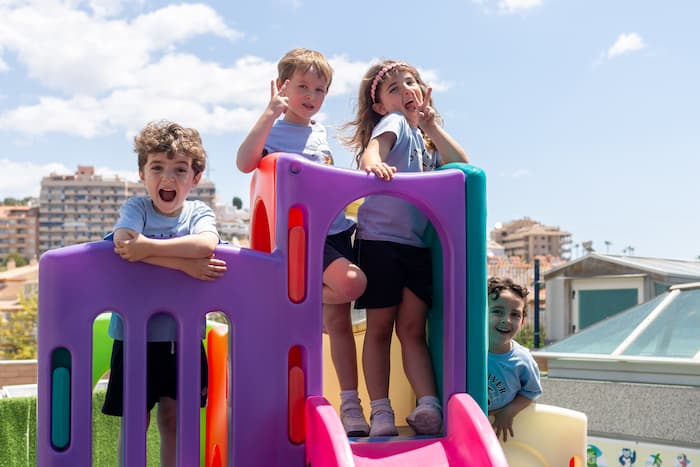- SALLIVER CAMPUS
- Growing in confidence
Our methodology revolves around our own Early Stimulation programs, focusing on each and every area of learning. These programs are taught by Early Childhood Education specialists, who guide students’ learning toward the full development of their abilities in a caring and fun environment, and are delivered over short periods of time.
Our results show children who are more confident, more curious and alert, smarter, and, ultimately, happier.
Early Childhood Education comprises two cycles of three years each:
This first stage of education is crucial for promoting the proper intellectual, motor, social, and emotional development of students through educational experiences that stimulate learning and the acquisition of new skills.

We prioritize the recognition of our own and others’ emotions and feelings. Through activities that promote self-awareness, autonomy, self-esteem, communication, conflict resolution, and more, we develop in children qualities of kindness, respect, emotional control, and problem-solving skills.
Based on the visual and auditory exposure of intelligence bits, as units of information whose objective is to increase the capacity to retain information and lay the foundation for the acquisition of solid knowledge. The bits we apply stimulate the child’s intelligence, increase their vocabulary, improve their attention span, and develop their memory.
Based on multiple intelligences. If we take advantage of the neurological capacity acquired in the first six years of life, we will facilitate the development of mathematical ability, which we need to master to function in life, by speeding up mental calculations. The goal is to guide the process from concrete to abstract thinking through manipulation, experimentation, observation, and play.
Reading comprehension is the basis of all learning. We introduce written words, developing the visual area of the brain until they reach a level suitable for understanding written language. We also increase the child’s vocabulary and enhance their comprehension and expression.
Our writing method begins with activities prior to making the marked line, starting with the actual drawing itself and finally moving on to paper, acquiring correct writing and directionality.
We try to take advantage of the sensitive period for language learning, starting with early childhood education, which is bilingual, and when a language is most easily and enjoyable to assimilate, offering children the opportunity to communicate in a foreign language (English).
Utilizamos cookies propias y de terceros para analizar el uso del sitio web y mostrarte publicidad relacionada con tus preferencias sobre la base de un perfil elaborado a partir de tus hábitos de navegación (por ejemplo, páginas visitadas) Política de cookies.